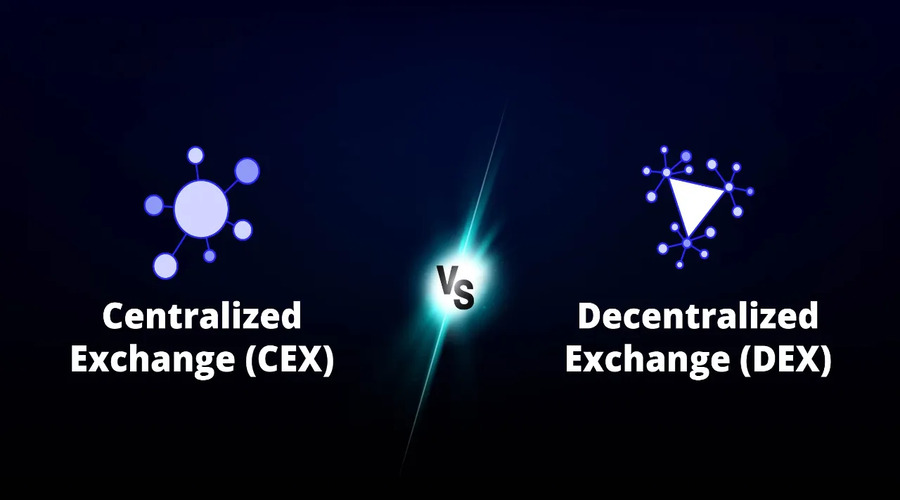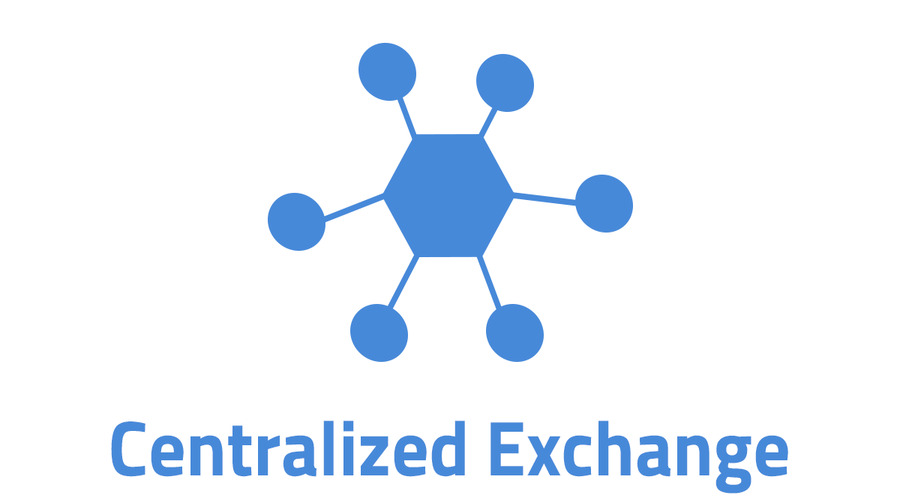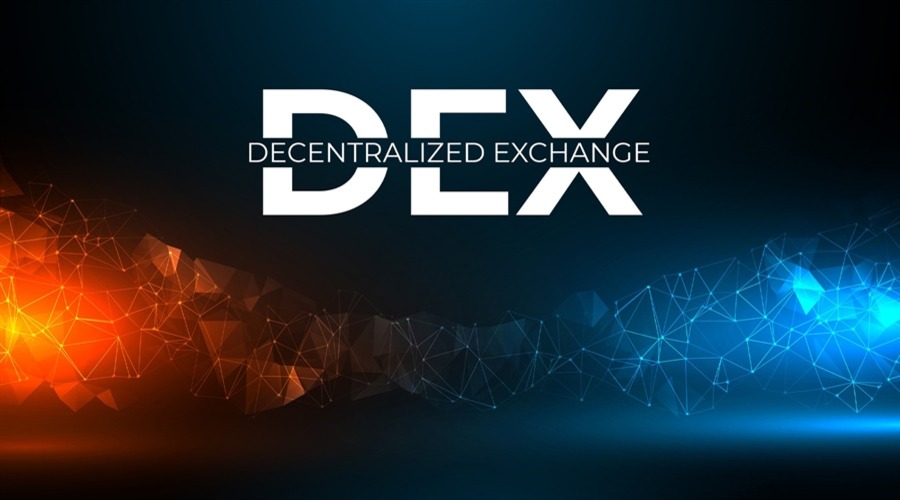Centralized Exchanges (CEX) vs. Decentralized Exchanges (DEX)

Centralized Exchanges (CEX) vs. Decentralized Exchanges (DEX)
Cryptocurrency exchanges play a vital role in the world of digital assets, facilitating the buying, selling, and trading of various cryptocurrencies. When it comes to exchanges, there are two main types: centralized exchanges (CEX) and decentralized exchanges (DEX). Each type offers distinct advantages and disadvantages, catering to different needs and preferences. In this article, we will delve deeper into the characteristics of CEX and DEX, highlighting their pros and cons to help you make an informed decision for your cryptocurrency trading journey.
Introduction to CEX and DEX
As the popularity of cryptocurrencies surged, so did the need for platforms where users could easily exchange their digital assets. This gave rise to centralized exchanges, which have been the traditional go-to platforms for cryptocurrency trading. However, decentralized exchanges have gained momentum in recent years, offering an alternative approach that aligns with the principles of decentralization and blockchain technology.
What are Centralized Exchanges (CEX)?

Centralized exchanges, as their name implies, are operated and controlled by a central entity. These exchanges act as intermediaries, connecting buyers and sellers, and facilitating the exchange of cryptocurrencies. Examples of well-known centralized exchanges include Coinbase, Binance, and Kraken.
Advantages of Centralized Exchanges
- Liquidity: One of the significant advantages of CEX is their liquidity. Centralized exchanges often attract a large user base, resulting in higher trading volumes and deep order books. This means that users can easily buy or sell cryptocurrencies at competitive prices without significantly impacting the market.
- User-Friendly Interface: CEX platforms typically offer intuitive and user-friendly interfaces, making them accessible to both experienced traders and beginners. They provide features such as market orders, limit orders, and stop-loss orders, allowing users to execute trades with ease and convenience.
- Faster Transactions: Centralized exchanges generally have faster transaction processing times compared to their decentralized counterparts. These platforms are built to handle a large number of transactions simultaneously, ensuring quick execution of trades and minimizing potential delays.
- Customer Support: Another advantage of CEX is the availability of customer support. In case users encounter any issues or have inquiries, they can rely on the exchange’s dedicated support team for assistance. This level of support can be particularly helpful for novice traders who may require guidance or clarification.
Disadvantages of Centralized Exchanges
- Lack of Privacy: When using centralized exchanges, users are often required to provide personal information and comply with Know Your Customer (KYC) regulations. While this is necessary to ensure regulatory compliance, it compromises privacy as users’ identities and transaction history are stored and can potentially be accessed by authorities or malicious actors.
- Security Risks: CEX platforms are attractive targets for hackers due to the substantial funds they hold on behalf of their users. Several high-profile exchange hacks have occurred in the past, resulting in significant losses. Users must trust the security measures implemented by the exchange, adding an element of risk to their cryptocurrency holdings.
- Centralized Control: In contrast to the decentralized nature of cryptocurrencies, centralized exchanges exercise control over users’ funds. Users must trust the exchange to safeguard their assets and manage the private keys required for accessing and transferring cryptocurrencies. This control contradicts the principle of self-custody and places reliance on a centralized entity.
- Regulatory Compliance: Centralized exchanges operate within the regulatory frameworks of the jurisdictions they operate in. This means they must comply with specific regulations, which can vary from one country to another. Compliance requirements may restrict certain services or impose additional limitations on users based on their location.
What are Decentralized Exchanges (DEX)?

Decentralized exchanges operate on blockchain networks and leverage smart contracts to facilitate peer-to-peer trading without the need for intermediaries. These exchanges embody the principles of decentralization, transparency, and user control. Examples of well-known decentralized exchanges include Uniswap, SushiSwap, and PancakeSwap.
Advantages of Decentralized Exchanges
- User Control and Privacy: Decentralized exchanges prioritize user control and privacy. Users retain ownership of their private keys, ensuring full control over their funds and eliminating the need to trust a centralized entity. Additionally, DEX platforms often do not require users to provide personal information, offering a higher level of privacy and anonymity.
- Security: Decentralized exchanges are considered to be more secure compared to their centralized counterparts. As they operate on blockchain networks, they eliminate the risk of a single point of failure. Funds are stored in users’ wallets rather than being held by the exchange, reducing the attractiveness of DEX platforms to potential hackers.
- Lower Fees: DEX platforms generally have lower fees compared to CEX platforms. Since there are no intermediaries involved, users can save on transaction fees and other charges. This can be especially advantageous for frequent traders or those conducting larger trades.
- Global Accessibility: Decentralized exchanges are accessible to users worldwide without any restrictions. As long as users have an internet connection and a compatible wallet, they can participate in trading on DEX platforms. This global accessibility promotes inclusivity and provides opportunities for individuals who may not have access to traditional banking services.
Disadvantages of Decentralized Exchanges
- Lower Liquidity: Decentralized exchanges often face challenges in achieving the same level of liquidity as their centralized counterparts. The absence of a central order book and the fragmentation of liquidity across various DEX platforms can result in wider spreads and slippage during trades. However, liquidity is steadily improving as the popularity of DEX platforms grows.
- Slower Transactions: Transactions on decentralized exchanges can be slower compared to centralized exchanges due to the reliance on blockchain networks and the consensus mechanisms involved. The speed is limited by block confirmation times and network congestion. However, ongoing developments in blockchain scalability solutions aim to address these limitations and enhance transaction speeds on DEX platforms.
- Learning Curve: Decentralized exchanges can have a steeper learning curve, particularly for users who are new to cryptocurrencies and blockchain technology. Understanding concepts such as wallets, private keys, and interacting with smart contracts may require some time and effort. However, user-friendly interfaces and educational resources are increasingly available to support newcomers in navigating DEX platforms.
- Limited Customer Support: Decentralized exchanges typically do not provide dedicated customer support services like centralized exchanges. Since the platforms are decentralized, users are responsible for their actions and need to exercise caution when conducting trades. However, decentralized communities and forums often offer assistance and guidance to address common queries and issues.
Centralized Exchanges vs. Decentralized Exchanges: A Comparison
When deciding between CEX and DEX, it’s essential to consider several factors that align with your specific requirements and priorities. Let’s compare the two types of exchanges across different aspects:
- Security and Privacy: CEX platforms require users to trust the exchange with their funds and personal information. While they implement security measures, the risk of hacking and data breaches remains. DEX platforms, on the other hand, prioritize user control and privacy, eliminating the need to trust a centralized entity and offering enhanced security through blockchain technology.
- Liquidity and Trading Volume: CEX platforms generally have higher liquidity and trading volumes due to their established user bases and market presence. This higher liquidity enables users to execute trades at desired prices with minimal impact on market conditions. DEX platforms, although growing in popularity, may have lower liquidity and fragmented trading volumes across different DEX platforms.
- Speed and Efficiency: CEX platforms are designed for fast transaction processing, allowing users to execute trades swiftly. DEX platforms, however, are reliant on blockchain networks and require block confirmations, resulting in slower transaction speeds. However, ongoing developments in blockchain technology aim to improve the efficiency of DEX platforms.
- User Experience: CEX platforms often provide user-friendly interfaces, offering familiar trading experiences similar to traditional financial platforms. They cater to users of all levels of experience, including beginners. DEX platforms may have a steeper learning curve due to the involvement of wallets, private keys, and smart contracts. However, user interfaces are continually improving, simplifying the user experience.
- Regulatory Compliance: CEX platforms comply with regulatory requirements to operate within specific jurisdictions. This compliance ensures a level of legitimacy and can provide users with a sense of trust and security. DEX platforms, being decentralized, operate in a more regulatory grey area. Users should be aware of the legal implications and regulatory considerations within their respective jurisdictions.
Conclusion
Centralized exchanges (CEX) and decentralized exchanges (DEX) offer distinct approaches to cryptocurrency trading, each with its own set of advantages and disadvantages. CEX platforms provide liquidity, user-friendly interfaces, and customer support but may compromise privacy and security. DEX platforms prioritize user control, privacy, and security while facing challenges such as lower liquidity and a learning curve. To choose between CEX and DEX, evaluate your priorities, consider the advantages and disadvantages discussed, and select the exchange type that aligns best with your trading needs and preferences.
FAQs
- What is the difference between CEX and DEX?
- CEX refers to centralized exchanges that are operated and controlled by a central authority. DEX refers to decentralized exchanges that leverage blockchain technology and smart contracts to facilitate peer-to-peer trading without intermediaries.
- CEX refers to centralized exchanges that are operated and controlled by a central authority. DEX refers to decentralized exchanges that leverage blockchain technology and smart contracts to facilitate peer-to-peer trading without intermediaries.
- Which type of exchange is safer?
- Decentralized exchanges are considered safer due to their decentralized nature, reducing the risk of hacking or security breaches associated with centralized exchanges.
- Decentralized exchanges are considered safer due to their decentralized nature, reducing the risk of hacking or security breaches associated with centralized exchanges.
- Are decentralized exchanges legal?
- The legality of decentralized exchanges varies from jurisdiction to jurisdiction. Users should familiarize themselves with the regulatory landscape and legal implications within their respective countries.
- The legality of decentralized exchanges varies from jurisdiction to jurisdiction. Users should familiarize themselves with the regulatory landscape and legal implications within their respective countries.
- Can I trade all types of cryptocurrencies on both CEX and DEX?
- Centralized exchanges generally offer a wider range of cryptocurrencies for trading compared to decentralized exchanges. However, DEX platforms are continuously expanding their offerings and supporting an increasing number of cryptocurrencies.
- Centralized exchanges generally offer a wider range of cryptocurrencies for trading compared to decentralized exchanges. However, DEX platforms are continuously expanding their offerings and supporting an increasing number of cryptocurrencies.
- What factors should I consider when choosing between CEX and DEX?
- Factors to consider include liquidity, security, privacy, fees, speed, user experience, and regulatory compliance. Assess your priorities and trading needs to make an informed choice.








